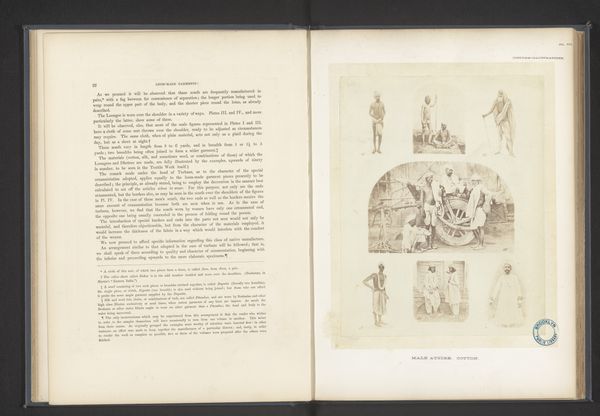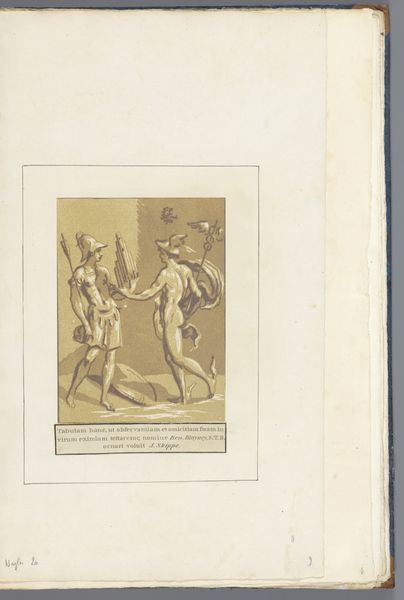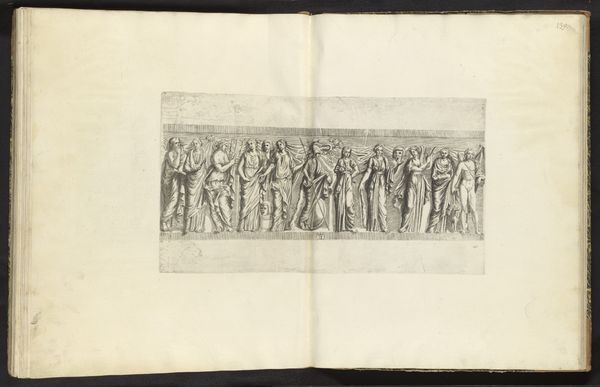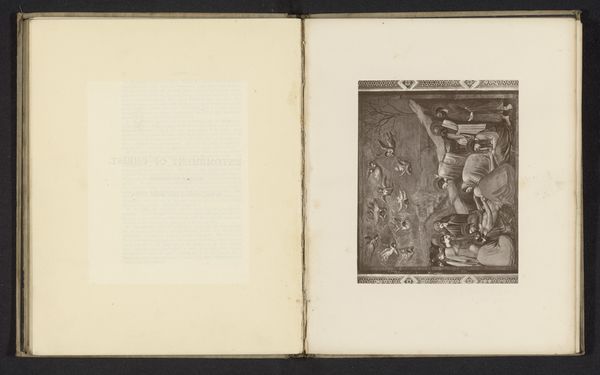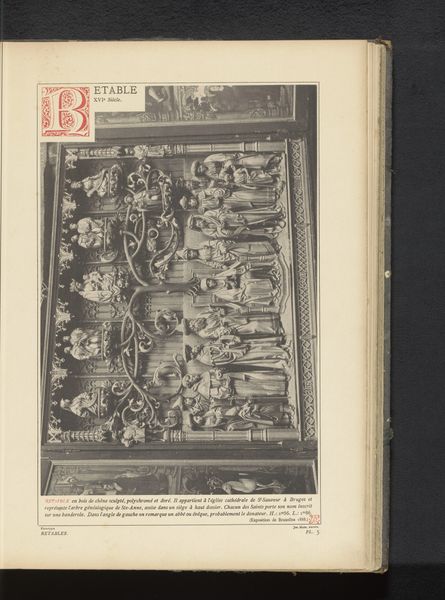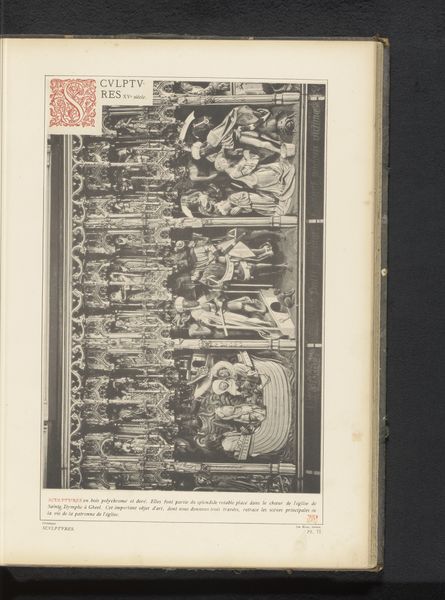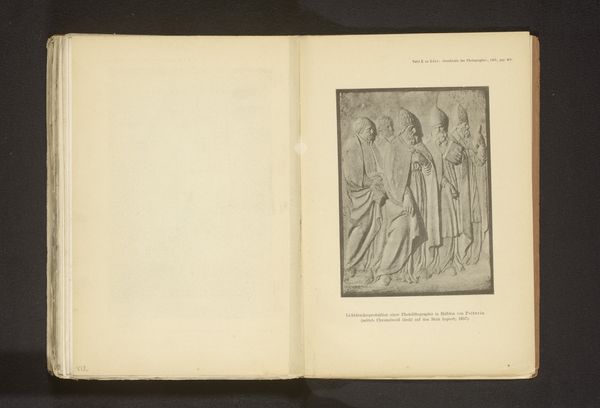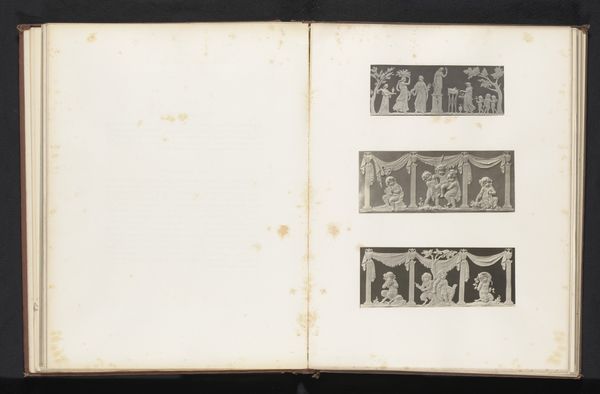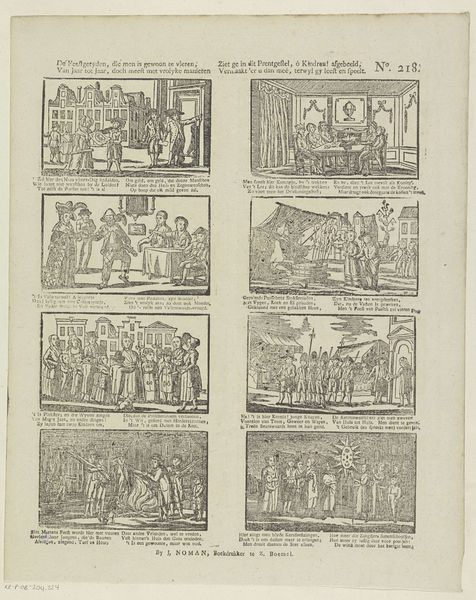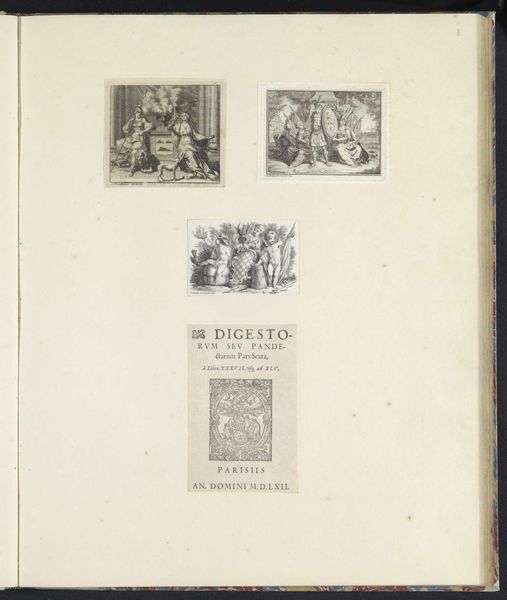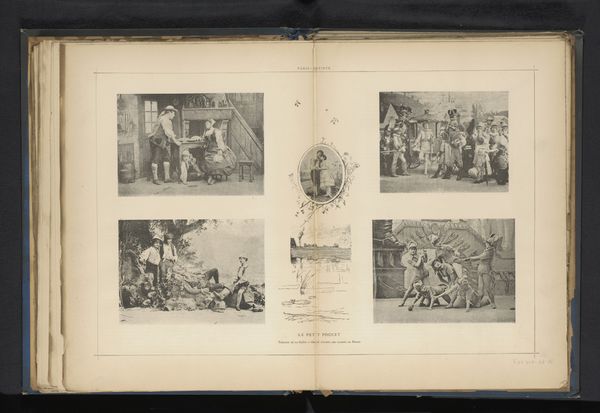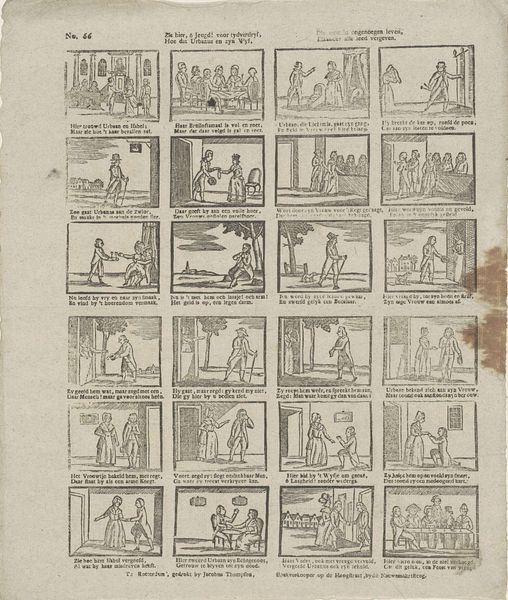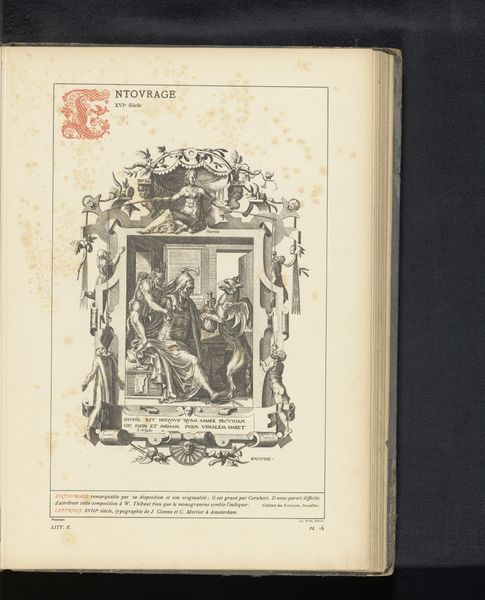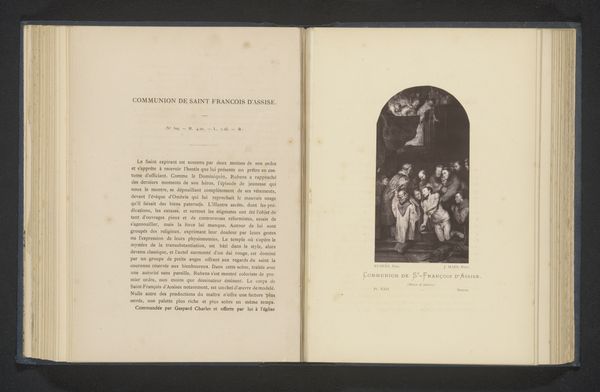
print, engraving
#
medieval
# print
#
figuration
#
history-painting
#
engraving
#
historical font
Dimensions: height 345 mm, width 235 mm
Copyright: Rijks Museum: Open Domain
These tapestries, likely made sometime in the 15th or 16th century, are visual feasts of woven wool, depicting scenes of Christ. Tapestry as a medium occupies an interesting place in art history. Often overlooked as "mere" decoration, it was actually one of the most prestigious art forms of its day. The making of tapestries involved a highly skilled and labor-intensive process. First, an artist would create a painted design. Then, weavers, often working in large workshops, would painstakingly translate this design into textile, knot by knot. The very scale of these tapestries speaks to the immense amount of work involved. The cost of materials, the time invested, and the skill required all contributed to their value. So, when you look at these tapestries, consider them not just as images, but also as testaments to the social and economic systems that produced them. Tapestries remind us that art is always entangled with labor, politics, and consumption.
Comments
No comments
Be the first to comment and join the conversation on the ultimate creative platform.
